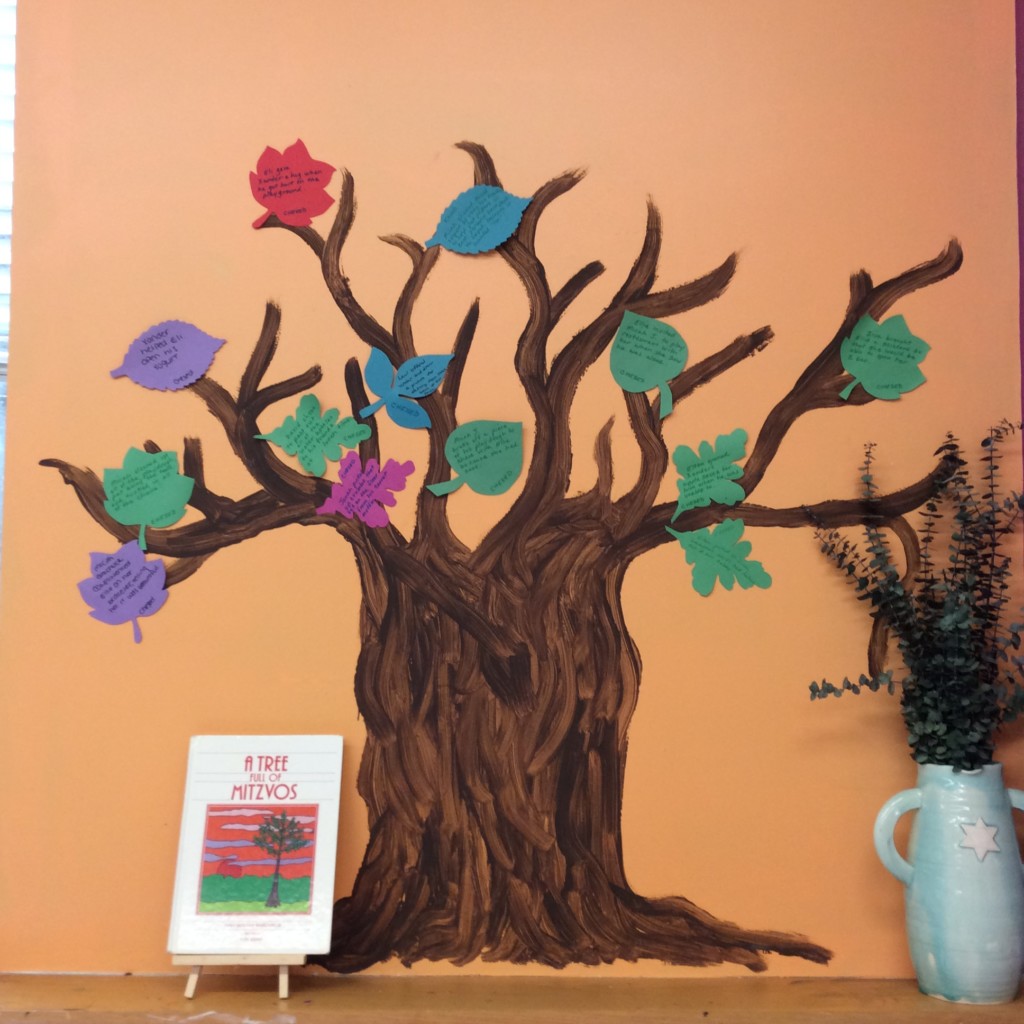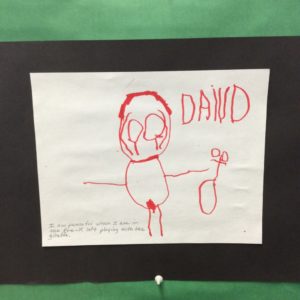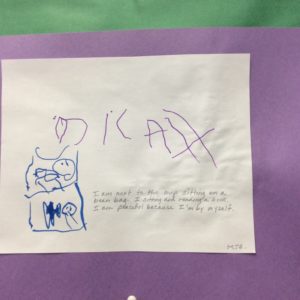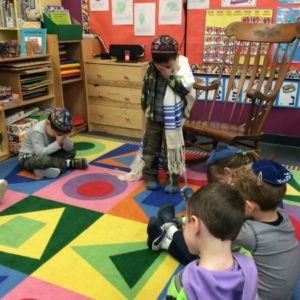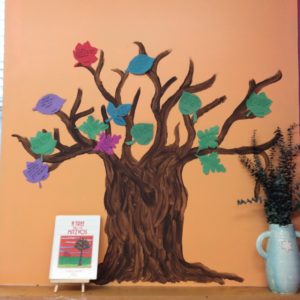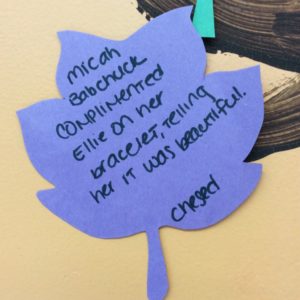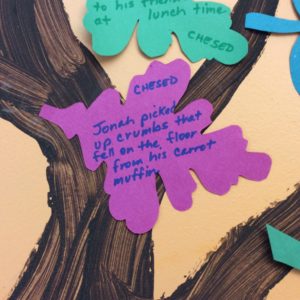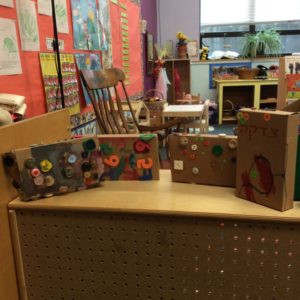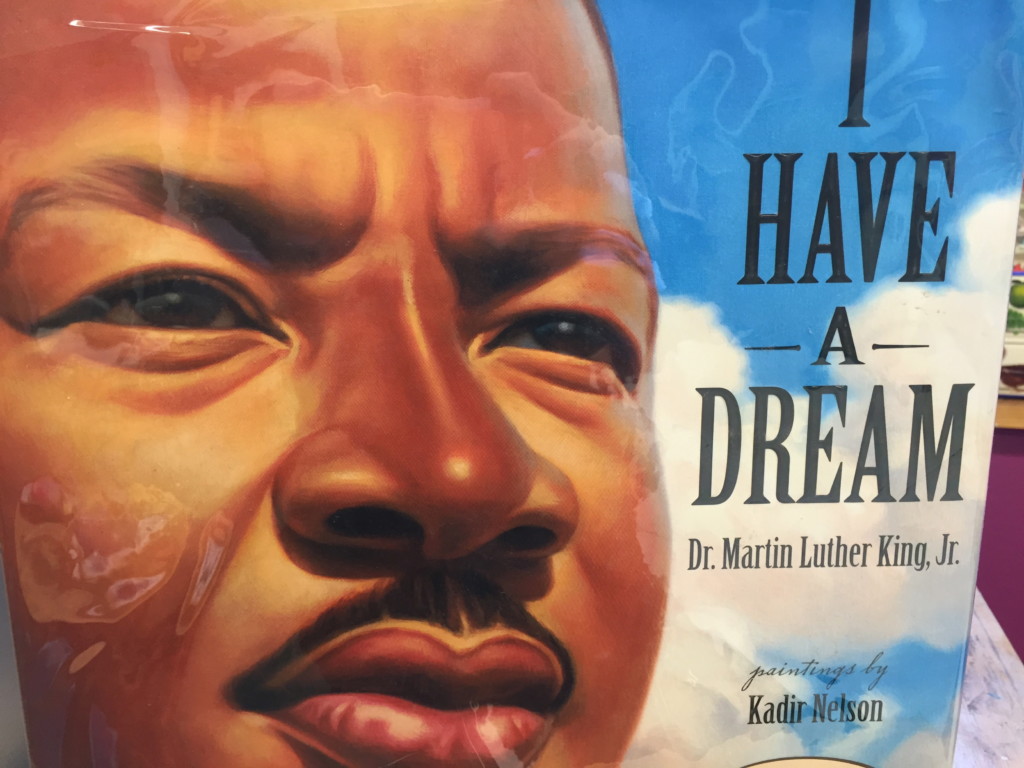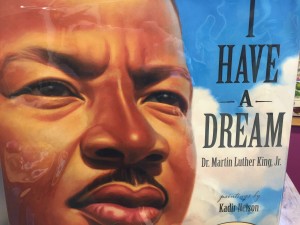This past month the Pre-K class has learned how to become a peaceful kehillah (community). In our Feelings Journals we have shared what makes us happy and where our peaceful places are. On Open School Night, our parents left us pictures of their peaceful places.
By covering our eyes while saying Shema Yisrael, we learned that we can “talk” to Hashem (G-d). We also discussed how special we are since we all have a “spark of Hashem” in us. Betzalem Elokim is being created in Hashem’s image. In order to give each other respect (kavod), we created class rules:
“use kind words” Ziva
“share” Eli
“don’t take anything (from friends)” Micah J
“don’t push anybody out of the way” Levi
“don’t pop people’s bubbles” Xander
“show kavod (respect) by not throwing wood chips or sand” Quinn
Our Kavod & Chesed Tree – Tree of Kindness and Respect – is filled with beautiful mitzvot (good deeds).
Ellie initiated the need for tzedakah (charity) boxes when she brought in coins before our Shabbat celebration. We painted and embellished 4 cardboard boxes for this purpose. We then spoke of how we could help people in need.
